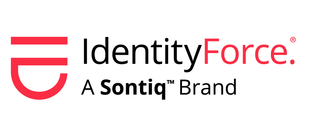6 Best Identity Theft Protection Services of July 2025
Identity theft is as pervasive as ever: A quick look at the Fraud and ID Theft Maps of the Federal Trade Commission (FTC) shows 841,810 reports of ID theft by the end of September last year, reaching 2021 numbers. And just recently, Americans were alerted to one of the largest data breaches to date, with more than 2,900,000,000 records leaked.
Identity theft protection services can’t prevent ID theft from happening — that’s a promise no one person or product can make. But they can soften the impact and help you get back on track, taking back over your identity before the greatest damage is done.
What to know about identity theft protection
- Aura, IDShield and LifeLock offer the most comprehensive protection across all the companies we reviewed.
- Credit services, such as three-bureau monitoring and credit score simulators or trackers, often show up in more expensive identity theft protection plans only.
- According to Javelin’s 2024 Identity Fraud Study, online identity fraud cases represent more than half of all cases. This makes cybersecurity tools more important than ever.
- An identity theft protection service can’t prevent criminals from stealing your information, but it can alert you to their activities and warn you if your data has been exposed online.
How we chose our top picks
Our team of writers and editors has spent years researching identity theft protection services. To accurately and fairly assess the companies we considered featuring on our list, we reached out to experts and gathered information from authoritative sources. We settled on 26 data points, including plan prices, monitoring types, identity restoration packages and cybersecurity tools.
Read our full methodology to learn more.
Our top picks for the best identity theft protection services
Aura - Best Identity Theft Protection Overall
LifeLock - Best Identity Theft Protection for Children
EverSafe - Best Identity Theft Protection for Seniors
IdentityForce - Best Identity Theft Protection for Families
Bitdefender - Best Identity Theft Protection for Content Creators
IDShield - Best Identity Theft Restoration
- Comprehensive monitoring and cybersecurity tools
- Up to $5 million insurance coverage with the family plan
- Affordable three-bureau credit monitoring
- 14-day free trial
- No social media monitoring
- High starting price
- Plan costs
- Starting at $15 per month
- Money-back guarantee
- 60 days on annual plans
- ID theft restoration coverage
- Up to $1 million per adult
- Three-bureau credit monitoring
- On all plans (other than the Kids plan)
Why we chose it: Aura simplifies the decision-making process with a single, all-inclusive plan available for individuals, couples and families that excels in both protection and restoration services.
Aura offers the most extensive monitoring service on our list, tracking public records, the dark web, high-risk transactions, and many more items, including less common ones like home and auto titles and investment accounts. It also comes with a VPN, an antivirus, an ad blocker and other cybersecurity tools that can help keep you safe online.
Although Aura’s plan is relatively expensive, it’s also the most affordable way for individuals to net three-bureau credit monitoring — most plans that offer this feature start at $20+, whereas Aura is $15. Lastly, on the restoration side, the service includes competitive ID theft insurance coverage in addition to a U.S.-based white glove fraud resolution team available 24/7
Paid Monthly
Paid Annually
Individual
$15/mo
$12/mo (billed as $144)
Couple
$29/mo
$22/mo (billed as $264)
Family
$50/mo
$32/mo (billed as $384)
Kids
$13/mo
$10/mo (billed as $120)
Learn more by reading our full Aura review.
- Offered by a reputable, well-established cybersecurity brand
- Excellent online security tools when bundled with Norton 360
- Kids plan is more affordable than most family plans
- Unique types of identity theft monitoring and alerts
- Child plan requires preexisting adult membership
- Plans prices increase significantly upon renewal
- Plan costs
- Starting at $4.99 per month
- Money-back guarantee
- 14 days on monthly plans, 60 days on annual plans
- ID theft restoration coverage
- Up to $3 million, depending on the plan
- Three-bureau credit monitoring
- On Advantage and Ultimate Plus tiers
Why we chose it: LifeLock offers a dedicated add-on for children that provides additional insurance coverage and robust security at just $5.99 per month per child (for the first year).
LifeLock’s monitoring is one of the most comprehensive in the industry, covering unique items like home and auto titles, utility account creation and even phone takeover attempts. LifeLock Junior adds onto the already comprehensive monitoring capabilities of the brand’s adult plans with child SSN monitoring, regular scans of file-sharing networks for any exposure of a child's personal information, and an additional $25,000 insurance coverage, among other benefits.
Individual Plans
Paid Monthly
Paid Annually
Identity Advisor
$4.99/mo
$39.99 1st year, $49.99/yr after renewal
Standard
$11.99/mo
$89.99 1st year, $124.99/yr after renewal
Advantage
$22.99/mo
$179.88 1st year, $239.99/yr after renewal
$34.99/mo
$239.88 1st year, $339.99/yr after renewal
Family Plans
Paid Monthly
Paid Annually
Ultimate Plus (2 adults)
$69.99/mo
$395.88 1st year, $679.99/yr after renewal
Ultimate Plus (2 adults + 5 kids)
$79.99/mo
$467.88 1st year, $799.99/yr after renewal
Learn more by reading our full LifeLock review.
- Specialized monitoring for seniors and their family members
- Affordable prices and a 20% senior discount
- Tracks daily transaction for unusual activity
- Regularly provides educational material
- Monitoring is not as thorough as competitors’
- Doesn’t come with any cybersecurity tools
- Plan costs
- Starting at $7.49 per month
- Money-back guarantee
- 30-day free trial on all plans
- ID theft restoration coverage
- Up to $1 million
- Three-bureau credit monitoring
- On Gold tier
Why we chose it: EverSafe is the only identity theft protection service designed specifically for seniors — and it shows — with features like elder fraud monitoring, caregiver support and retirement savings alerts.
EverSafe’s standout feature is the “trusted advocate” option, which allows seniors to designate trusted individuals to receive alerts and help monitor for suspicious activity. The system flags irregularities like unexpected withdrawals, late bill payments and changes in spending patterns as warning signs that could indicate fraud, elder financial abuse or even cognitive decline.
Affordability is another key advantage of EverSafe, as it offers a 20% senior discount to those 60 and older. Additionally, the company sends a monthly financial health and scam watch newsletter to keep seniors and their families informed about emerging fraud tactics.
Paid monthly
Paid annually
Essentials
$7.49/mo
$76.32/yr
Plus
$16.99/mo
$173.28/yr
Gold
$26.99/mo
$275.28/yr
- Unlimited dark web and social media monitoring for children
- Monitors the credit of up to 10 children
- A brand of credit bureau TransUnion
- Risk scores for each dark web hit
- Lacks affordable family plan options
- No parental control tools
- Plan costs
- Starting at $19.90 per month
- Money-back guarantee
- 30 days on UltraSecure plan only
- ID theft restoration coverage
- Up to $1 on UltraSecure plan, or up to $2 million on UltraSecure+Credit plan
- Three-bureau credit monitoring
- On UltraSecure+Credit tier
Why we chose it: IdentityForce’s family plans offer comprehensive protection and restoration services for two adults and up to 10 children — an excellent choice for large families who want centralized protection.
As a brand of one of the three major credit bureaus, IdentityForce benefits from direct access to credit data and risk analysis tools, strengthening its ability to detect identity threats early. The service also features extensive monitoring, delivering all alerts and notifications to the IdentityForce dashboard which allows parents to monitor potential threats in one place.
Despite its strong security features, IdentityForce does not include parental control tools, which some families may find disappointing. However, it makes up for this with reasonably-priced plans that provide a robust level of protection plus additional perks like phishing and BotNet monitoring, a personalized action plan and an identity safety score.
Individual Plan
Family Plan
UltraSecure
$19.90 monthly or $199.90 annually
$24.90 monthly or $249.90 annually
UltraSecure+Credit
$34.90 monthly or $349.90 annually
$39.90 monthly or $399.90 annually
Learn more by reading our full IdentityForce review.
- Account takeover prevention and recovery
- Extensive cybersecurity and online protection tools
- Round-the-clock expert support
- Anti-scam email protection
- Focuses exclusively on YouTube (Instagram and Facebook support coming soon)
- Content creator plan lacks monitoring from regular plans
- Plan costs
- Starting at $7.99 per month
- Money-back guarantee
- 30 days on all plans
- ID theft restoration coverage
- Up to 2 million
- Three-bureau credit monitoring
- On Premium tier
Why we chose it: Bitdefender’s combination of identity protection, cybersecurity and privacy tools makes it ideal for content creators and their teams, who often operate in highly public online spaces and are prime targets for cyber threats.
Bitdefender offers one of the most complete cybersecurity suites in the industry, with a VPN, antivirus, malware and ransomware detector, anti-tracker, password manager and more. The service also scans the web for exposed personal data continuously, sending real-time alerts so creators can respond to potential security breaches before they escalate.
Regular plans
Paid monthly
Paid annually
Standard
$7.99/mo for the first month, renews at $12.99/mo
$69.99/yr for the first year, renews at $129.99/yr
Premium
$9.99/mo for the first month, renews at $20.99/mo
$99.99/yr for the first year, renews at $209.99/yr
Bitdefender Security for Creators
Paid monthly
Paid annually
Individual
$15/mo
$108/yr
Up to 3 members
$18/mo
$129.60/yr
Up to 5 members
$21/mo
$151.20/yr
- Guarantees to restore your identity — or your money back
- Up to $3 million reimbursement for unrecovered costs
- 24/7 support inquiries and emergency assistance
- Scans and cleans up your social media accounts
- Individual plans only cover three devices
- Cumbersome setup process
- Plan costs
- Starting at $14.95 per month
- Money-back guarantee
- Unlimited service guarantee
- ID theft restoration coverage
- Up to $3 million on all plans
- Three-bureau credit monitoring
- On 3 Bureau tier
Why we chose it: IDShield guarantees to restore your identity in the event of theft, offering full-service recovery with U.S.-based support available 24/7 and up to a remarkable $3 million in identity fraud protection.
IDShield’s plans monitor numerous items and come with a strong cybersecurity suite, but their main highlight is their restoration services. The company assigns customers a dedicated, licensed private investigator to handle the restoration process directly and covers up to $3 million in legal fees and financial losses related to fraud.
Another key feature of IDShield is its reputation management platform, which allows users to scan their social media presence, identify potentially damaging content, and clean up their digital footprint — an invaluable tool for professionals and public figures looking to protect their online image.
Individual Plan
Family Plan
1 Bureau
$14.95/mo
$29.95/mo
3 Bureau
$19.95/mo
$34.95/mo
Learn more by reading our full IDShield review.
Other identity theft protection services we considered
The following identity theft protection services are decent choices but either offer niche services, didn’t stand out in any particular area or fell just short of landing in one of our top categories.
Identity Guard
Identity Guard boasts an extensive list of monitoring types on its plans and extensive credit protection services. Unfortunately, many of these features are locked behind the company’s more expensive plans. Identity Guard also lags behind when it comes to online security tools: it doesn’t offer a VPN, malware protection or an antivirus.
Learn more by reading our full Identity Guard review.
ReliaShield
ReliaShield plans cost less on average for what they bring and are a solid option for protecting your kids. Its family plans cover all children under 18 and include dark web and neighborhood predator monitoring. However, it lacks the standout features of the companies in our top list and it doesn’t offer device protection tools, which have become a staple offering in the industry.
Learn more by reading our full ReliaShield review.
FreeKick
FreeKick isn’t a traditional identity theft protection service. Rather, it’s a deposit account for your family that can protect their identity while helping your children build credit when they turn 13. If you are able to make the upfront investment — at least $1,000 — and maintain that balance, it’s a worthwhile alternative to traditional family identity theft protection plans.
What you need to know about identity theft
Identity theft occurs when someone uses your personal identifiable information (PII) for personal gain without permission. What often follows is known as identity fraud, which is when a thief uses your stolen information to commit a crime, such as opening accounts, applying for credit, filing taxes or seeking medical services in your name.
Identity theft comes in many forms, and not all of them look like a a malicious hacker on the other side of the screen waiting for you to write your password. Your information can be stolen digitally or physically, and as part of a broad or targeted attack.
Data breaches: Cybercriminals that gain unauthorized access to a business’s database may steal names, dates of birth, home and email addresses, passwords, credit cards, driver’s licenses and even Social Security numbers.
Phishing: Identity thieves can trick you into sharing private information or downloading attachments that infect your device by using emails or text messages that look like they’re from legitimate companies, such as banks, online stores and social media sites.
Formjacking: By inserting malicious code into legitimate website forms, hackers can copy your billing information or login credentials without arousing suspicion.
AI fraud: AI technology is able to amplify online scams, for example, by automating credential stuffing attacks and generating highly personalized (and convincing) phishing emails. It could also facilitate fraud through the use of deepfake videos and AI voice cloning.
Physical document theft: Thieves that get their hands on sensitive documents by stealing your wallet or mail can use it for all sorts of nefarious purposes, such as to commit credit card fraud or Social Security identity theft.
Other kinds of identity theft
Some methods for stealing a person’s identity exploit specific types of documents, such as medical, investment and tax records. A thief could also compile several pieces of information to create a fake version of you.
Child identity theft: Scammers can steal a child’s personal information and use it to wrongfully obtain services and benefits, or to commit fraud. This often goes unnoticed until years later when the affected individual tries to obtain a job, car insurance or a new credit card.
Medical identity theft: Your information could be used to obtain a health insurance policy or to submit false claims to Medicare and other insurers. This may also involve a scammer using your health insurance to visit a doctor or get a prescription.
Tax identity theft: A scammer that gets access to your Social Security number can use it to file a fraudulent tax return and collect the refund before you do. Most people become aware of this type of theft when the Internal Revenue Service (IRS) flags their tax return as a duplicate.
Synthetic identity theft: Cybercriminals might create new identities by combining real personal information with fake data. For example, they may use a real Social Security number and a false name to apply for a loan.
How does identity theft protection work?
Identity theft protection companies help you monitor your private information across the internet to spot scams early on. They send alerts when your information might be compromised and can help restore your identity in case of theft, reimbursing you for losses in some cases.
The most common features of identity protection services are:
Identity monitoring: Identity theft protection services monitor websites, databases and public records and alert you if your sensitive information is being shared or used by fraudsters. They may track your SSN, driver’s license, passport, home address, phone number and bank accounts (e.g. checking and investment accounts).
Credit report monitoring: Credit monitoring services review your credit report from one or all three major credit bureaus — Experian, Equifax and TransUnion — for signs of possible fraud and identity theft. If any suspicious activity turns up in your credit file, you are notified via email, text or phone so you can verify this information.
(If you’ve already been the victim of identity theft, and there is inaccurate information in your credit history, make sure to check out our guide to the best credit repair companies).
Identity recovery services: Restoration services provide professional assistance to help you recover your identity and secure your accounts. This includes contacting government agencies, requesting a credit freeze and helping you write letters to creditors and debt collectors.
Although you can dispute your credit report on your own, hiring a company to do so can save you time and effort.
Identity theft reimbursement: Also called identity theft insurance, this covers stolen funds and out-of-pocket expenses related to recovering your identity such as legal fees or lost wages. Coverage ranges from $20,000 to $1 million, but can go as high as $5 million in some cases.
VPN services: A virtual private network (VPN) creates an encrypted tunnel between your device and its online destination. This limits how much of your data ends up online and how vulnerable you are to malicious third parties, especially on public wi-fi networks.
Antivirus software: Antivirus search your device’s system files, documents, programs and applications to detect and remove malicious software (e.g. viruses, trojans, adware) that may be tracking you or stealing your information.
How can I prevent my identity from being stolen?
Preventing identity theft altogether is nearly impossible nowadays due to the growth of online scams and data breaches. However, you can limit your level of exposure to identity theft by following a few key security practices:
- Strengthen your passwords. Use complex, unique combinations and avoid reusing them. A password manager can help keep track of multiple passwords securely.
- Monitor your credit. Regularly check your credit reports and statements for unauthorized activity. You can request fraud alerts or freeze your credit to prevent new accounts from being opened in your name.
- Protect your devices. Install antivirus software, enable two-factor authentication whenever possible and keep an eye out for phishing attempts. Avoid carrying around sensitive documents like your Social Security card and shred important paperwork before throwing it away.
- Limit your online exposure. Deactivate or delete any unnecessary accounts, request that data brokers remove your information and limit internet cookies to minimize your digital footprint.
How to report identity theft
To report identity theft, start by filing a report with the Federal Trade Commission (FTC) at IdentityTheft.gov or by calling 1-877-438-4338. You may also file a police report, especially if you suspect who committed the crime. When reporting, have important documents ready, including your FTC Identity Theft Report, a government-issued photo ID, proof of address, and evidence of the theft (such as unfamiliar bills or credit checks).
For phishing scams, forward suspicious emails to reportphishing@apwg.org and text messages to SPAM (7726). Remember to report the phishing attack to the FTC's File A Complaint page and to the FBI’s Internet Crime Complaint Center.
To protect your credit, immediately contact your bank and credit card issuer and place a fraud alert with one of the three major credit bureaus: Experian (1-888-397-3742), TransUnion (1-800-680-7289), or Equifax (1-888-766-0008). The bureau you notify will inform the other two.
Latest identity theft news
Data breaches continue to grow in number and size, as last year’s National Public Data breach showed, which left nearly 3 billion records exposed. Most recently, data breaches of DISA Global Solutions and edtech giant PowerSchool left the records of tens of millions Americans exposed.
Recent data from the Federal Trade Commission shows that 2024 had the first year-over-year increase in identity theft reports since 2021. According to the FTC, the number of reports rose by 9% nationwide, with Florida seeing the biggest increase overall. This upwards trend continues into 2025, with reports in the first quarter surpassing those of last year.
New research from Visa Consulting and Analytics (VCA) Insights points towards a sharp rise in fraud and identity theft on digital banking platforms. Shifting away from traditional payment fraud, cybercriminals are increasingly using stolen credentials to apply for financial services, with digital document forgeries and deepfakes being employed more often in fraud attempts.
ID Theft Protection FAQs
How much does identity theft protection cost?
Is it worth paying for identity theft protection?
How can I check if someone is using my identity?
Methodology
When evaluating identity theft protection services, we focused on three main factors in addition to cost: protection, restoration and reputation. The best services offer comprehensive identity and credit monitoring, have a robust identity theft restoration package and are in good standing with their customers and the industry at large.
Protection services
Identity theft protection services are based mainly on a system of monitoring and alerts that they use to notify customers if their information is compromised. They can then help them avoid fraud, or at least limit its impact.
We highlighted services that track a wide range of items as well as those with unique types of monitoring. Common alerts include those for dark web, social media, bank account, change of address and data breach monitoring. Other items, such as home and auto titles, investment accounts and high-risk transactions, are usually monitored on more expensive plans only.
Some services can also proactively limit how much information you leave online when surfing the Web, or they might protect your devices from spam and malicious software. We favored services that included cybersecurity tools like a VPN, password manager, malware blocker and antivirus on most or all of their plans.
Restoration services
In some cases, an identity theft protection service will notify you of leaked data after it has already been used or sold by fraudsters. A dependable service will offer some level of fraud insurance to combat this, which can reimburse you for legal fees incurred during the identity recovery process.
We favored services that advertise generous identity restoration packages of at least $1 million per individual. We also considered whether they had experts available around the clock to guide you through the recovery process, featured a credit lock on their platform and contacted financial institutions or government agencies on your behalf to report foul play.
Reputation
A company’s reputation can suggest what to expect when it comes to picking an identity theft protection service. As with any industry, legal action against a company should be a red flag in all but the most fringe cases. Customer feedback online slants negative, so we only flagged services that had considerably negative reviews on reputable third-party websites.
To determine reputation, we looked at complaints on the Consumer Financial Protection Bureau and the Better Business Bureau and identified any trends, including if they promptly responded to customers. We also considered feedback from reviews in Trustpilot and platforms with methods of verifying customer feedback, favoring services with higher ratings overall.
Summary of our top picks
Aura - Best Identity Theft Protection Overall
LifeLock - Best Identity Theft Protection for Children
EverSafe - Best Identity Theft Protection for Seniors
IdentityForce - Best Identity Theft Protection for Families
Bitdefender - Best Identity Theft Protection for Content Creators
IDShield - Best Identity Theft Restoration
















